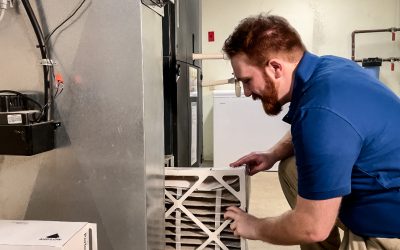In the ever-evolving landscape of heating and cooling technologies, heat pumps have emerged as a beacon of efficiency and sustainability. These innovative devices leverage the principles of heat transfer to provide both heating and cooling solutions for residential, commercial, and industrial spaces. As the world grapples with the urgent need for eco-friendly alternatives, heat pumps have become pivotal in the quest for energy-efficient climate control.
How Heat Pumps Work
At the heart of a heat pump’s functionality lies the intricate dance of heat transfer. These systems consist of key components such as compressors, evaporators, and condensers, working in unison to transfer heat from one location to another. The refrigeration cycle is the backbone of this process, enabling heat pumps to extract warmth from the air, ground, or water sources, depending on the type of heat pump.
Types of Heat Pumps
There are two main types of heat pumps, being:
- Air-Source Heat Pumps: Air-source heat pumps are the most common type, extracting heat from the outdoor air and transferring it inside during the colder months. Their versatility makes them suitable for various climates, but their efficiency might decline in extremely cold conditions.
- Ground-Source (Geothermal) Heat Pumps: Geothermal heat pumps tap into the stable temperature of the earth below the surface. While they boast higher efficiency and reliability, the upfront costs and installation complexities are significant considerations.
Advantages of Heat Pumps
The adoption of heat pumps brings forth a multitude of benefits. These include:
- Energy Efficiency and Cost Savings: Heat pumps are renowned for their energy efficiency, consuming less electricity than traditional heating and cooling systems. This translates into substantial cost savings for consumers, making them an attractive investment in the long run.
- Environmental Benefits: As champions of sustainability, heat pumps produce fewer greenhouse gas emissions compared to conventional heating methods. By relying on renewable energy sources, they contribute to the global effort to combat climate change.
- Versatility in Heating and Cooling: One of the remarkable features of heat pumps is their ability to provide both heating and cooling functions. This versatility makes them a year-round solution, eliminating the need for separate systems and optimizing space utilization.
Applications of Heat Pumps
The applications of heat pumps span across various sectors.
- Residential Heating and Cooling: In homes, heat pumps offer efficient temperature control, ensuring comfort while minimizing environmental impact. Their ability to work in tandem with existing HVAC systems makes them a seamless and eco-friendly choice for homeowners.
- Commercial and Industrial Applications: From office buildings to large industrial complexes, heat pumps scale up effortlessly to meet diverse heating and cooling demands. Their adaptability makes them a preferred choice for businesses striving to reduce their carbon footprint.
- Hybrid Systems and Integration with Other Technologies: Hybrid systems that combine heat pumps with traditional heating methods provide a transitionary solution, maintaining efficiency while addressing specific climate challenges. Additionally, the integration of heat pumps with smart home technology enhances control and optimization.
Factors to Consider When Choosing a Heat Pump
Before investing in a heat pump, several factors merit consideration.
- Climate Considerations: Different types of heat pumps perform optimally in specific climates. Understanding the local climate conditions is crucial to selecting a system that meets the heating and cooling needs effectively.
- Sizing and Capacity: Choosing the right size and capacity ensures that the heat pump operates at peak efficiency. Oversized or undersized units can lead to suboptimal performance and increased energy consumption.
- Installation and Maintenance Requirements: Professional installation and regular maintenance are essential for the longevity and efficiency of heat pump systems. Understanding these requirements beforehand is crucial for a hassle-free experience.
Challenges and Limitations
While heat pumps offer a plethora of benefits, they are not without challenges.
- Cold Climate Performance: Air-source heat pumps may face reduced efficiency in extremely cold climates. Supplemental heating methods or opting for geothermal systems may be necessary in such scenarios.
- Upfront Costs and Installation Challenges: The initial investment for heat pumps, especially geothermal systems, can be higher than traditional systems. However, the long-term energy savings often justify these upfront costs.
- Noise Concerns: Some heat pumps may produce noise during operation, a consideration for residential applications. Advancements in technology aim to mitigate this issue, but it remains a factor to be aware of.
Future Trends in Heat Pump Technology
As technology continues to advance, the future holds exciting possibilities for heat pumps. This includes:
- Innovations in Efficiency: Ongoing research and development focus on enhancing the efficiency of heat pump systems, making them even more attractive from both economic and environmental standpoints.
- Integration with Smart Home Technology: The marriage of heat pumps with smart home technology is gaining momentum. Remote monitoring, adaptive controls, and seamless integration with other smart devices are shaping the future of intelligent climate control.
- Policy and Regulatory Developments: As governments worldwide emphasize sustainability, policies and regulations promoting the adoption of heat pumps are expected to increase. Incentives and subsidies may further encourage individuals and businesses to embrace these eco-friendly systems.
In conclusion, heat pumps represent a significant leap forward in the quest for sustainable heating and cooling solutions. Their energy efficiency, environmental benefits, and versatile applications make them a compelling choice for individuals, businesses, and industries alike. As technology continues to evolve, the future of heat pumps holds promise, steering us towards a greener and more sustainable tomorrow.




